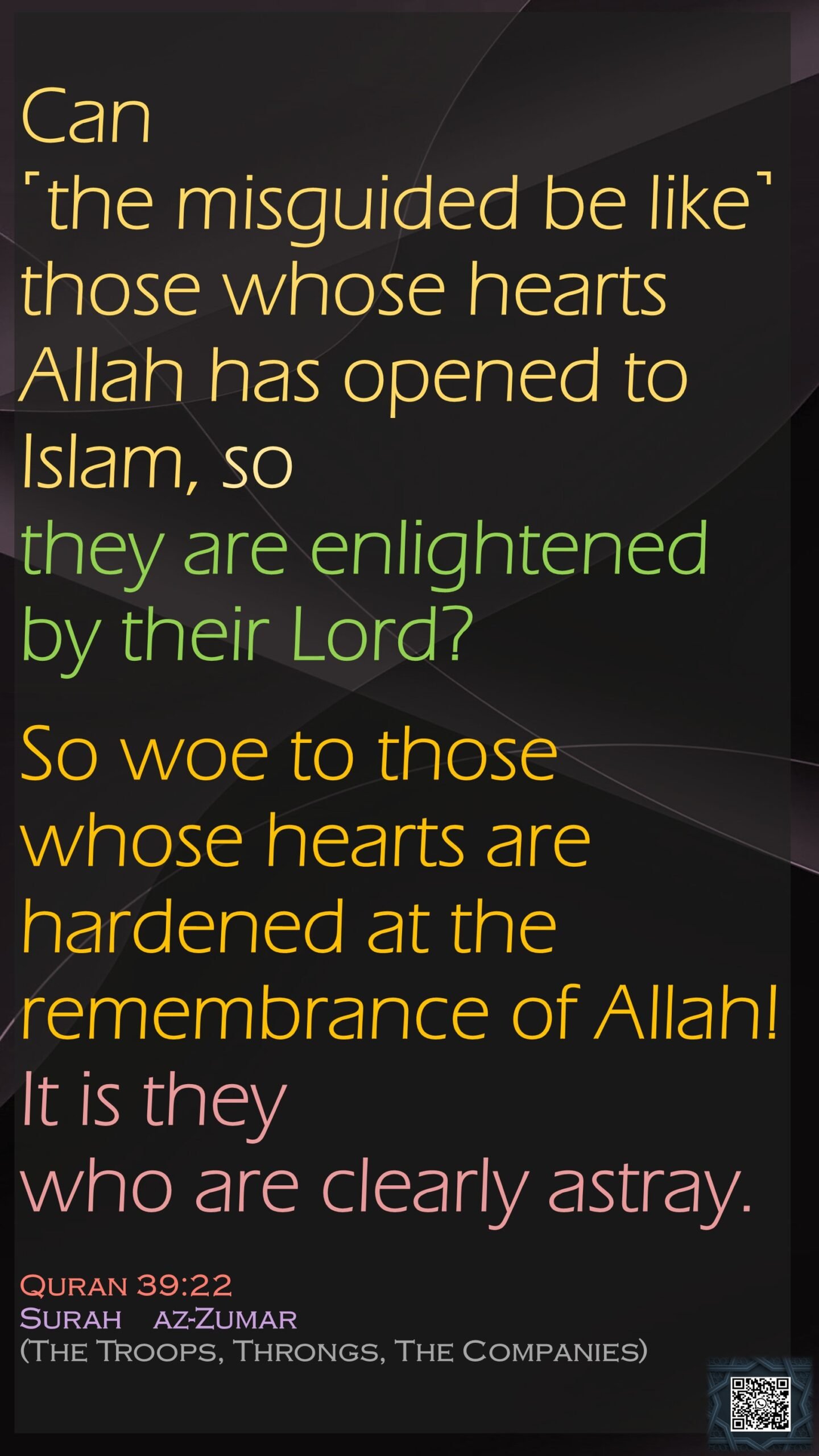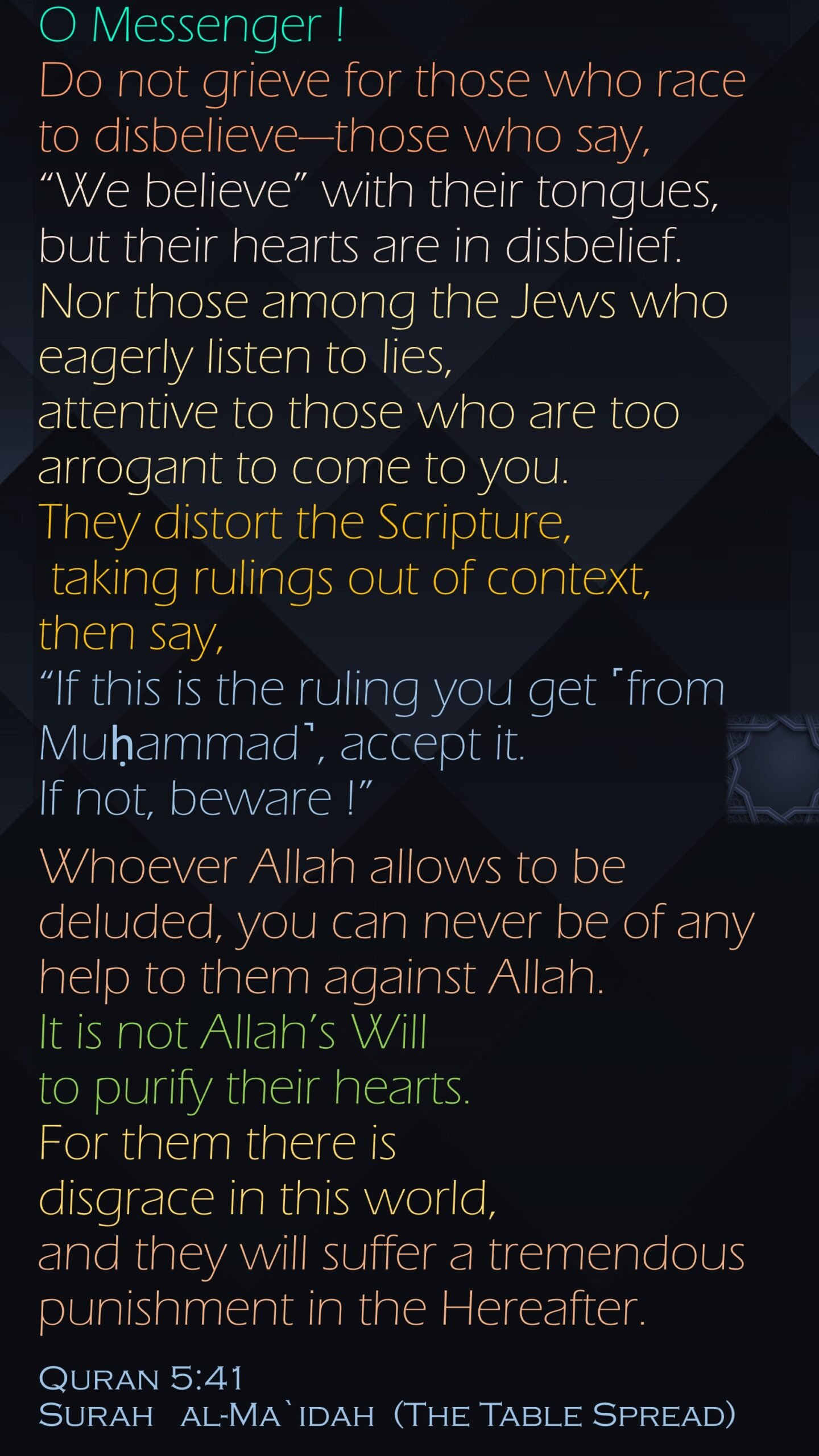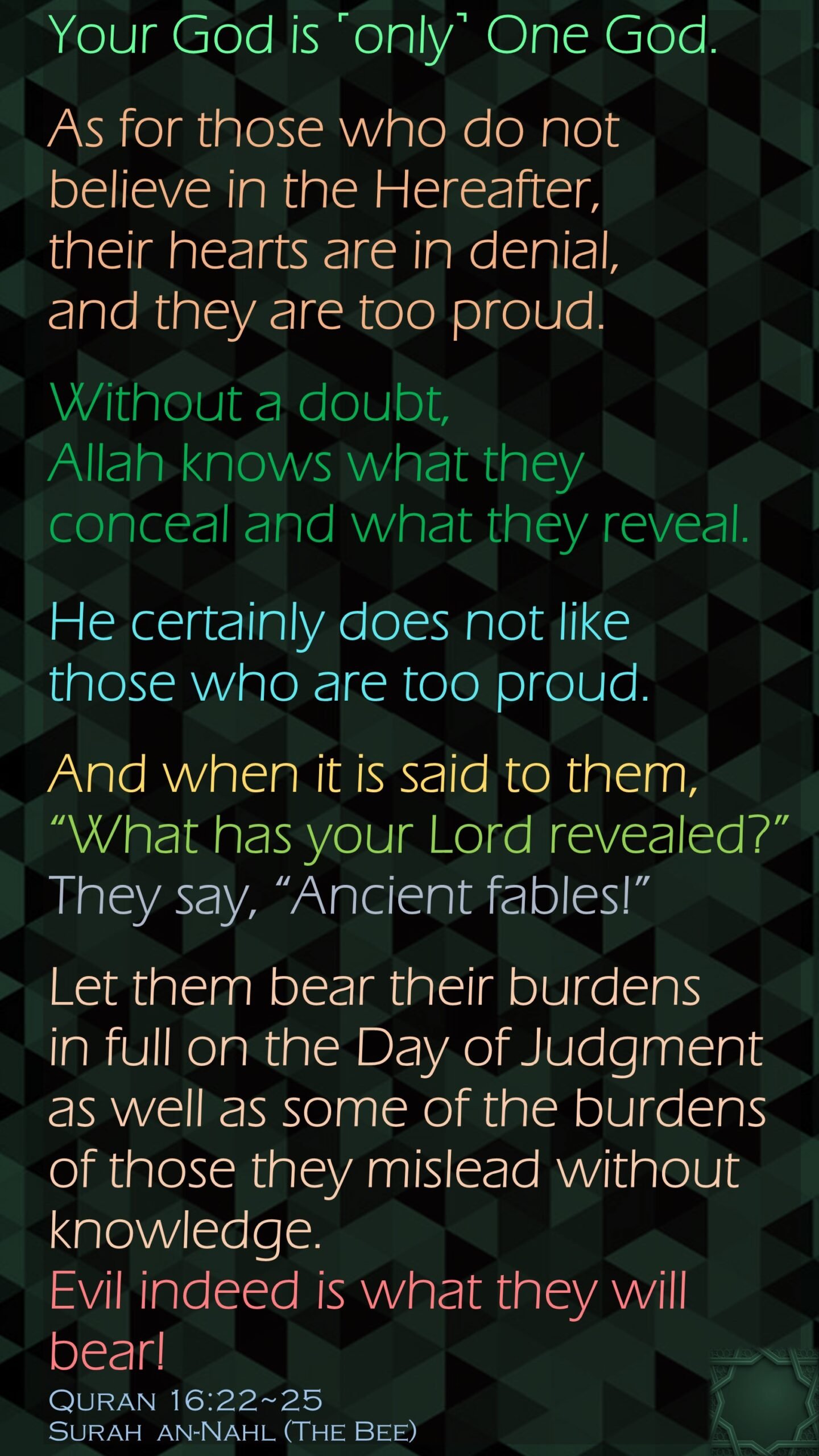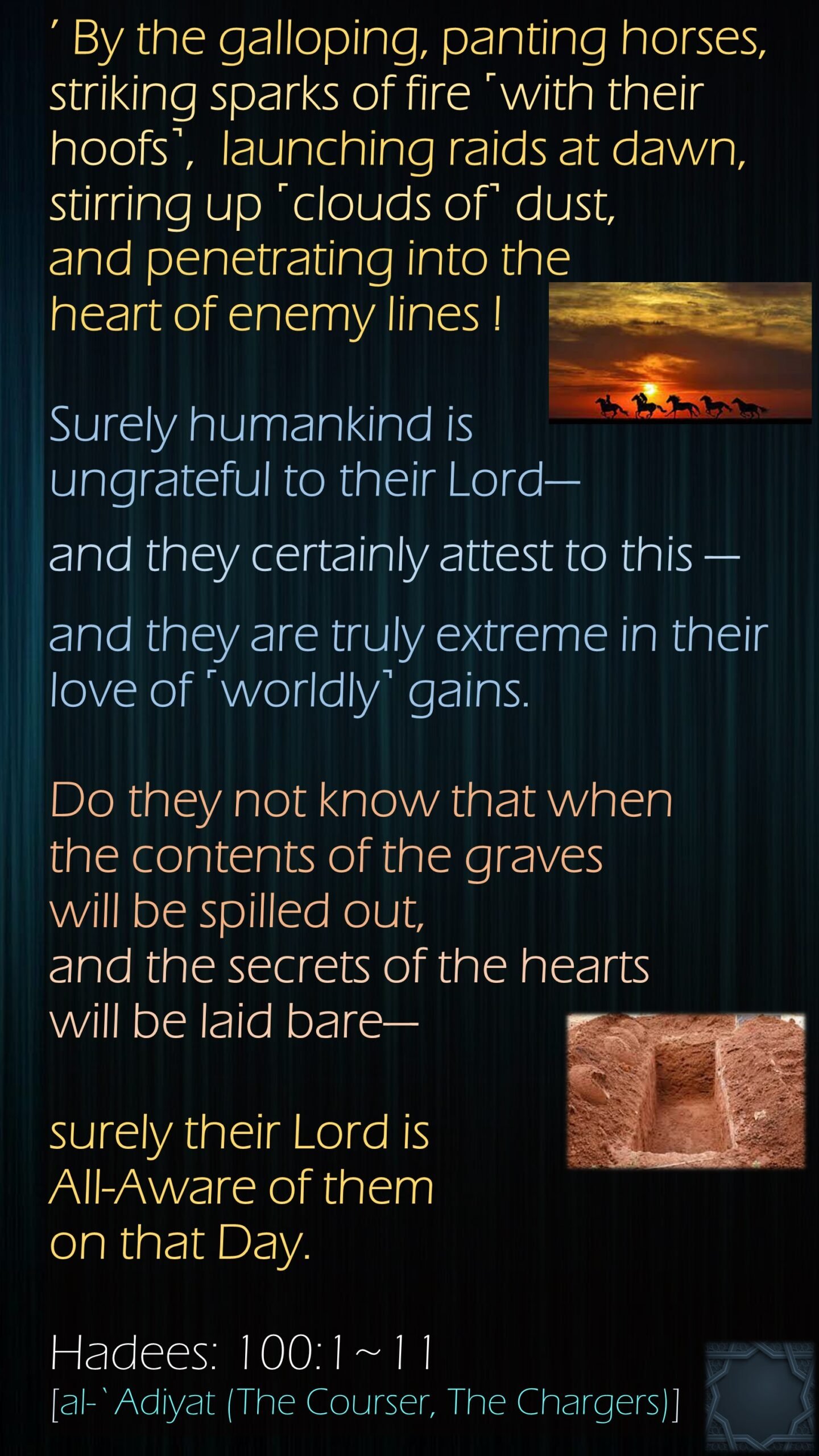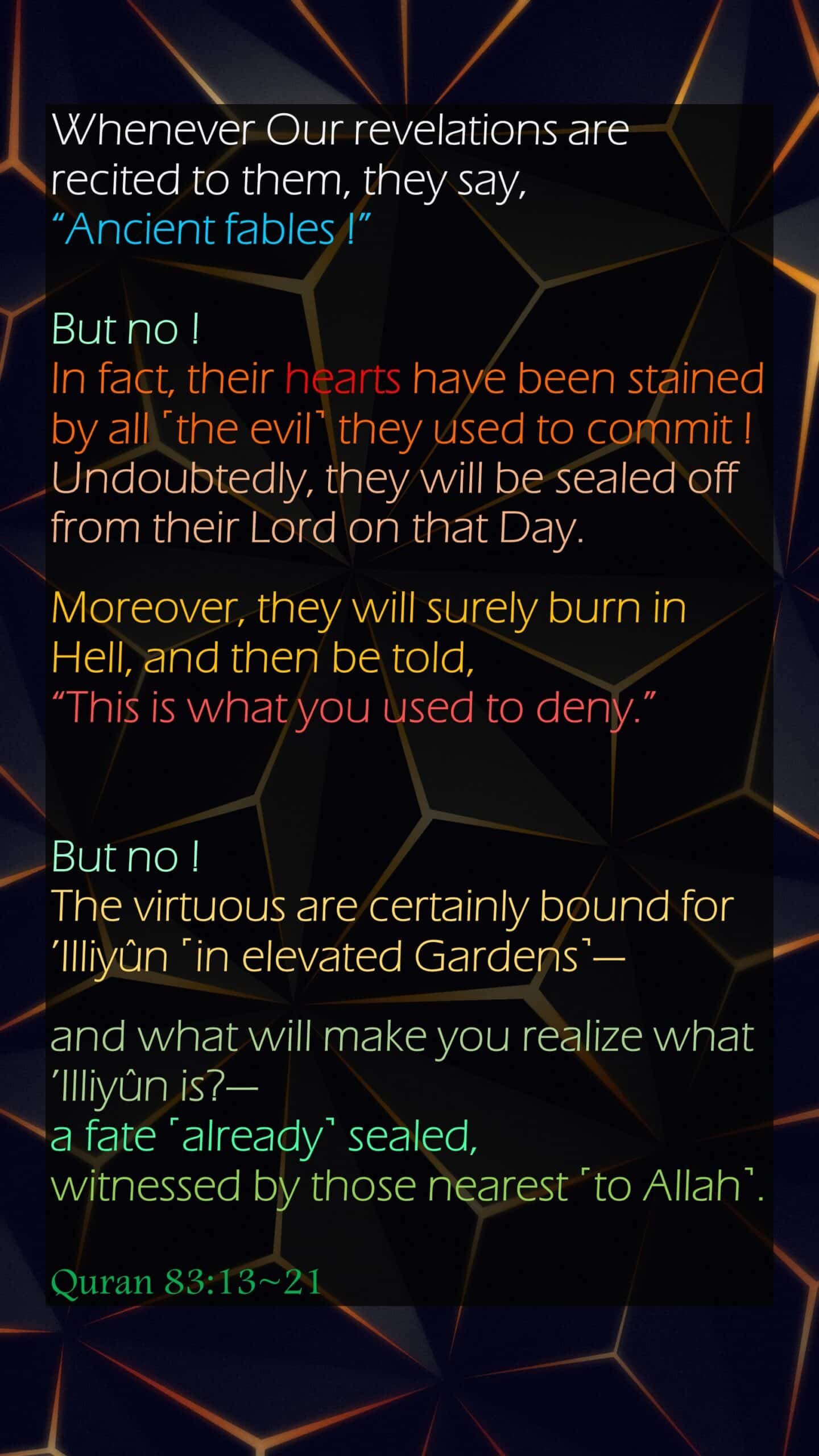23
Nov, 2024
Quran 5:41
Islam, Quran 005, 041, Al-Maidah, Allah, ayat, daily, disbelieve, hearts, hereafter, inspirations, islam, islamic, jews, Muhammad, Punishment, quran, ruling, scripture, Surah, tremendous, will, World
26
Oct, 2024
Quran 6:42~45
Islam, Quran 006, 032, 033, 034, 035, abundance, adversity, al-anam, appeal, ayat, daily, denial, deny, desire, despair, everything, grip, harden, hearts, humble, inspirations, islam, islamic, misdeeds, Muhammad, quran, Satan, seize, shower, suffer, Surah, uproot, wrongdoer
3
Jul, 2023
Quran 22:34~35
Islam, Quran Allah, animal, ayat, befall, Community, daily, donate, endure, establish, good, He provides, hearts, humble, inspirations, islamic, Muhammad, Name of Allah, news, One God, patientl, PBUH, prayer, Prophet, provision, quran, rememberance, rite, Sacrifice, SAWW, submit to Allah, Surah, tremble
25
Apr, 2023
Quran 27:71~75 (Ayah an-Naml)
Islam, Quran Allah, ayat, believers, bountiful, Chapter 27, close, conceal, daily, day, earth, hasten, hearts, heavens, hidden, humanity, inspirations, islam, islamic, judgement, Lord, most, Naml, Near, nothing, PBUH, perfect, Prophet, quran, Record, reveal, SAWW, Surah, ungrateful, verses 71 to 75, written
10
Apr, 2023

